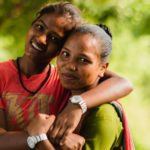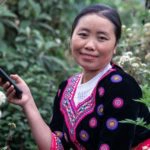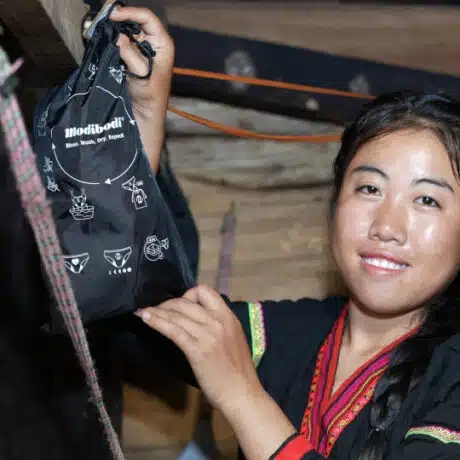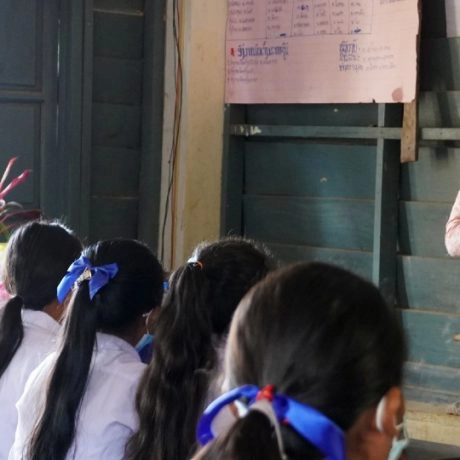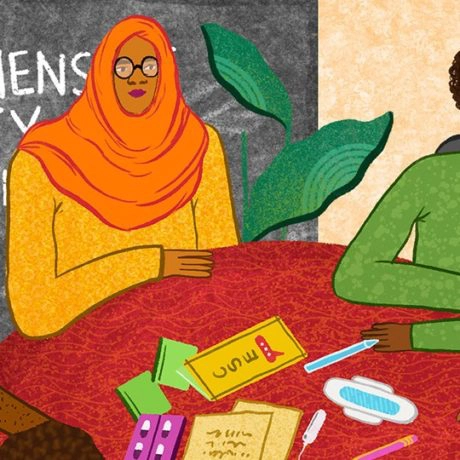News and Stories - Sexual health - 16 June 2021
Period Poverty and COVID-19
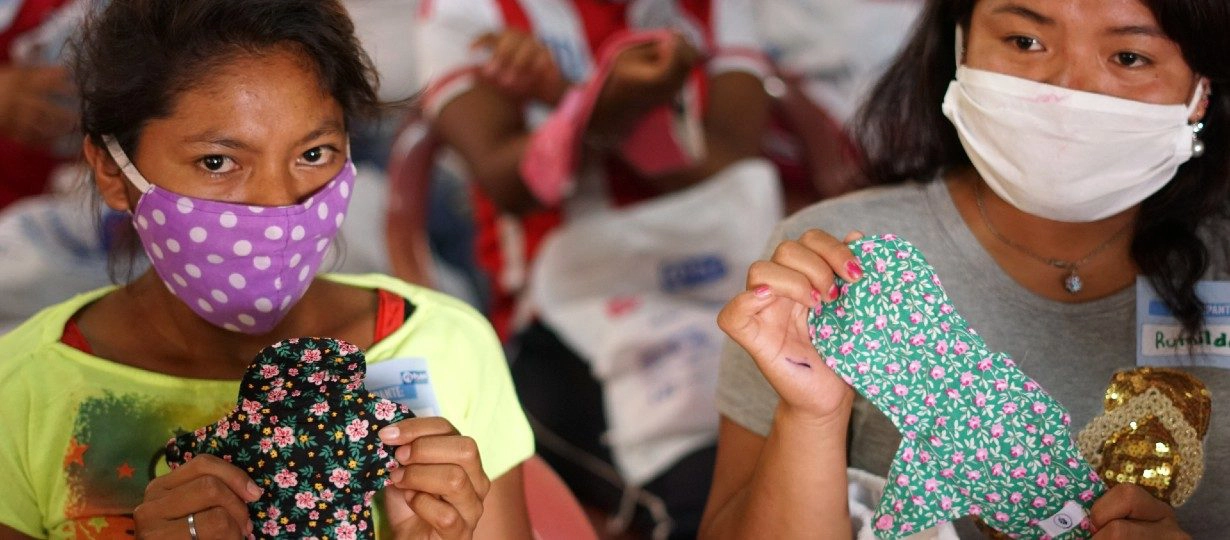
Periods don’t stop during a pandemic.
For millions of girls around the world, being able to safely manage their periods and be free of the taboo and stigma associated with menstruation is vital to ensuring their human rights, health and dignity – and these are all under threat right now as COVID-19 continues to devastate the world.
Plan International Australia’s latest report, launched on World Menstrual Hygiene Day, revealed that more than a year since the start of the COVID-19 pandemic, girls, women and gender diverse people who menstruate around the world are facing serious challenges when it comes to managing their periods.
Following on from last year’s research of the same name, Periods in a Pandemic: One Year On looks at the impact COVID-19 has had on menstrual health and hygiene (MHH) across 22 countries. It comes at a time when many of the countries surveyed – including our nearest neighbours in Asia and the Pacific – are experiencing shocking second and third waves of COVID-19, and access to sanitary products has become significantly more difficult.
Along with severe shortages of products, rises in the prices of pads and tampons and less access to clean water, the new report has exposed the toll that extended lockdowns, school closures and crowded, confined households have had on people’s menstrual health and hygiene.
“We are not going out at all, which is very hard,” said 15-year-old Shahid, a Syrian refugee living in Lebanon. “Only one family member is allowed to go outside to buy urgent needs, which is usually my father or my brother. Women, girls and children are not allowed to go anywhere.”
(So) it’s a big challenge to buy sanitary pads, I can’t go by myself to get them and I don’t have the money needed.The report reveals that managing menstrual health has become significantly more challenging – particularly for girls menstruating for the first time – where there are shared toilet and bathroom facilities, especially in areas where COVID-19 is rife.
Almost half (45%) of girls and gender diverse people who menstruate are facing decreased privacy when managing their periods, therefore struggling to change menstrual products, clean themselves hygienically and dispose of menstrual products after use.
In some countries, this lack of privacy has also led to an increase in period stigma and myths, with many girls and gender diverse people who menstruate feeling they have to hide bloodstains and other signs of menstruation from family members.
The report also includes key learnings on the benefit of online education sessions – especially for boys – and the importance of building period education into all school curriculums, along with recommendations on how menstrual health and hygiene can be incorporated into COVID-19 response strategies.
Plan International is calling on all governments and health agencies to urgently assist girls, women and people who menstruate to manage their periods safely and with dignity.
Combatting period poverty in Indonesia with Modibodi
In many places were Plan International works, COVID-19 has amplified period poverty. Young people in these communities are having trouble accessing period products and are missing out on vital information and support around menstrual health management and sexual and reproductive health.
Since recording its first case of COVID-19 in March 2020, Indonesia has been stuck in an endless wave of the pandemic, making it the worst-hit country in Southeast Asia. With a population of 270 million spread across a vast archipelago of 17,000 islands, the virus has brought heightened challenges to remote and difficult to reach regions in particular.
Menstrual health is still a taboo topic in many traditional Indonesian communities, and often it is not discussed at home, so schools and community health centres play an important role in ensuring young people have access to menstrual health information and support.
Although remote learning has helped bridge the education gap while schools are closed during lockdown, information about periods and sexual and reproductive health aren’t translating into the remote learning space.
So what are we doing about it?
In response to these challenges, Plan International shifted focus from face-to-face interventions for students within our Water for Women Funded project, to centre smaller online peer education sessions that empower students with a better understanding of MHM, which can then be shared with peers when schools reopen.
These smaller, virtual education sessions include both boys and girls, and seek to provide a safe space where students can comfortably discuss issues around menstrual health and sexual and reproductive health.
The need for greater support dealing with periods during the pandemic was also the catalyst for another partnership opportunity.
In October 2020, we joined forces with reusable menstrual underwear brand, Modibodi, for a three-month pilot aimed at combatting period poverty and ensuring women and girls have greater access to sanitary products.
Together we’ve provided 1,000 pairs of reusable underwear (approximately three pairs each) to 333 girls and women, including women with disabilities, alongside MHH education.
Prior to the pilot, no participants had tried any reusable menstrual underwear before, but three months on, 99% of the women and girls who tried the Modibodi product said they will continue to use them, and more than 74% said they now felt more confident managing their period.
Silvia Devina, a WASH and ECD Advisor in Indonesia believes “I think this is a really excellent solution to the challenges that disasters and pandemics have brought to MHM. The pilot has shown that reusable menstrual pants are a good solution and could make a real difference to period poverty in Indonesia…”
These girls and women feel safe knowing they can manage their period for some time until the supply chain is back in order.How can I get involved?
Plan International Australia is currently distributing dignity kits to communities in need all around the world.
A Dignity Kit has all of the essentials people who menstruate need to manage their periods during a crisis like COVID-19. The kit includes menstrual pads, body soap, washing soap for clothes, toothbrushes, shampoo and toilet paper.
You can pay it forward and purchase a dignity kit, which will help a girl manage her period, here.

